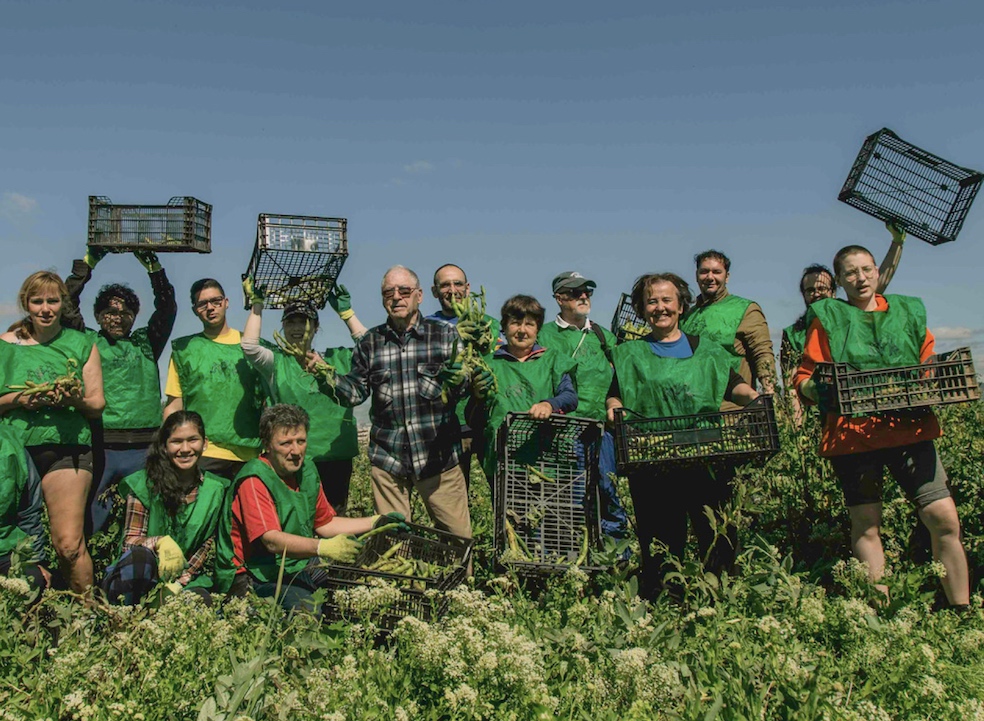We look back at 2019 with gratitude for what was accomplished and greet 2020 with a heightened urge to amplify the impact through the new decade. Here are some highlights from our work this past year:
The 14th Earth Overshoot Day campaign earned more than 4 billion media impressions in 121 countries, a 30% increase from the previous year. Meanwhile, the number of people who used the Footprint Calculator during that time increased by 26% from year-to-year. Swedish climate change youth activist Greta Thunberg tweeted about Earth Overshoot Day. Former secretary-general of NATO, Javier Solano, wrote that “the earliest ever Earth Overshoot Day is a stark reminder of how much we demand from our planet.” Pope Francis emerged from the ranks of global leaders as a new Ecological Footprint champion, declaring that Earth Overshoot Day is “the fact that has shocked me the most: By July 29th, we used up all the regenerative resources of 2019. (…) It’s a global emergency.” We look forward to watching who will follow in his footsteps in 2020.
Together with Schneider Electric, one of the world’s leading energy efficiency companies that is driving decarbonization, Global Footprint Network helped make the business case for one-planet prosperity, developing a framework based on the Ecological Footprint metric. The resulting white paper argues that businesses’ long-term success, across all sectors of the economy, depends on their business model being aligned with the necessary goal of living well within the means of our planet’s ecological budget. To launch this much-needed conversation in the business world, Schneider Electric’s CEO and Chairman Jean-Pascal Tricoire co-authored this op-ed in Fortune Magazine with Mathis Wackernagel, and posted this video statement on Twitter.
The City Footprinting initiative launched in Portugal in 2018 gained momentum as 12 new municipalities joined (Barcelos, plus the Intermunicipal Community of the Region of Aveiro.) There are now 18 municipal governments in Portugal that are committed to assessing their local Ecological Footprint and biocapacity with a view to developing public policies designed to pave their way to sustainability. The six original participating cities provided their residents with a custom version of the Footprint Calculator. From the onset, the project has been designed — in partnership with researchers at the University of Alveiro — to involve all stakeholders, including businesses, schools, neighborhood associations, and all residents. “United Nations conferences are not enough and the municipal scale is fundamental for proximity and better knowledge to make the best decisions,” said Francisco Ferreira, President of Global Footprint Network’s local partner ZERO. Watch for updates throughout 2020.
Our collaboration with York University to build independent national data accounts made steady progress. The Footprint Data Foundation (FODAFO) was officially incorporated in 2019 as a joint venture of Global Footprint Network and York University, with the goal to “inform the public and specific entities about how to measure Ecological Footprint and Biocapacity and how to use the data to advance sustainability.” FODAFO also confirmed the first appointments to its Science Advisory Committee led by Dr. Peter Victor: Dr. David Lin, Ed Hanna, Dr. Gordon McBean. The committee is providing advice about proposals to improve, and implement changes in, the methodology of the National Footprint and Biocapacity Accounts.
We launched the #MoveTheDate Solutions map. Still in a beta version, the platform has already garnered more than 3,000 members and 800 solutions. As we move to the next step to improve its content quality and intensify engagement, we look forward to working with you to curate and grow it into a powerful tool for knowledge sharing and relationship building to advance sustainability in the real world, one project at a time.
Our book “Ecological Footprint: Managing Our Biocapacity” came out, drawing on 30 years in the trenches to argue that resource accounting is essential to preventing global ecological bankruptcy. “If we treated our bank account as we have been treating the Earth’s natural capital, we would have gone bankrupt long ago. The planet has been extremely lenient with us but that resilience is about to give way to a natural and human crisis. This book is a loud wake up call to everyone,” commented Christiana Figueres, former Executive Secretary of UNFCCC and a global optimist.
Photo credit: Rafael Coelho. Volunteers at Espigoladors, the Spanish non-profit who won the first #MoveTheDate Solutions contest, Food category, in 2019.



